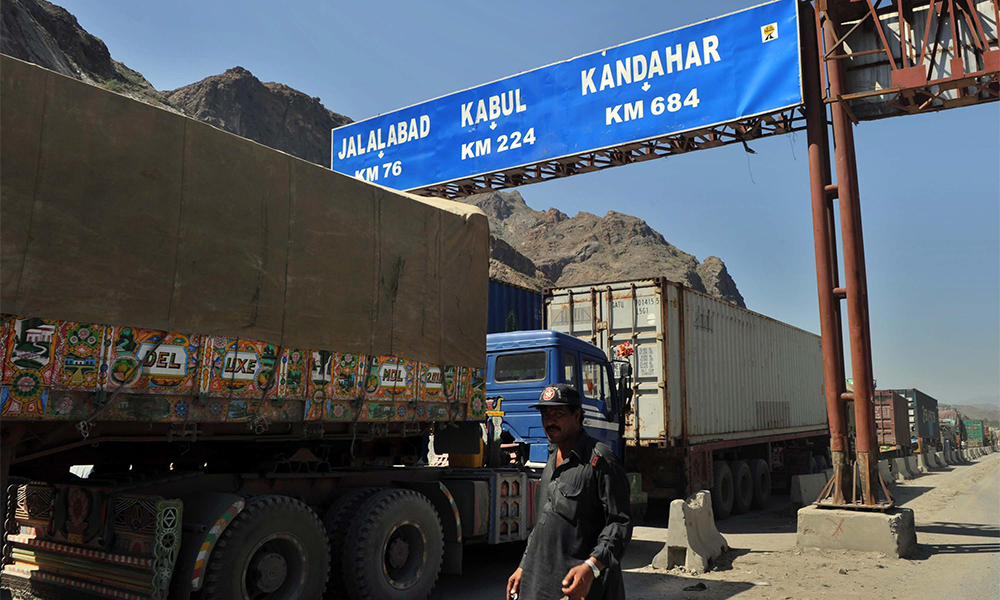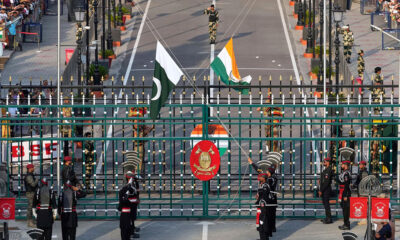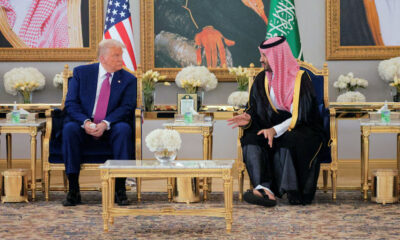Business
IEA welcomes World Bank report on Afghanistan’s economy

The Deputy Prime Minister for Economic Affairs of Islamic Emirate of Afghanistan (IEA) on Thursday welcomed the recent World Bank report on Afghanistan’s economy.
The office says that facts related to the country’s economic situation are reflected in the report.
Mullah Abdul Ghani Baradar’s office said in a statement that “the Islamic Emirate believes that if the international community pays attention to positive interaction instead of imposing restrictions, Afghanistan will progress further in the economic field and the burden of responsibility on the shoulders of the international community will be reduced.”
“If all international organizations such as the World Bank present a true picture of the concrete realities of Afghanistan, the way of positive interaction with the Islamic Emirate will be paved,” the statement read.
The World Bank report states that Afghanistan’s exports and imports have increased, monetary stability has been maintained, and domestic revenues have increased.
According to the report, during January to April 2023, imports stood at $2.4 billion, reflecting a 27 percent growth against the same period last year.
Iran remains the most significant import origin country (21 percent), followed by Pakistan (18 percent), China (16 percent), and the United Arab Emirates (13 percent), the World Bank reported.
However, the Jan-Apr 2023 merchandise trade deficit at $1.8 billion is 38 percent higher than the $1.3 billion observed in the comparable period of 2022.
Unofficial data for January to April this year indicates that Afghanistan’s customs show total exports reached $0.6 billion — a 4 percent rise compared to the same period in 2022.
The export growth during Jan-Apr 2023 can primarily be attributed to an increase in the exports of coal, by 13 percent, and textiles by 14 percent, the report stated.
Pakistan remains Afghanistan’s largest export market accounting for 63 percent of total exports, followed by India (26 percent). Exports to Pakistan are mainly food and coal. Coal exports to Pakistan amounted to $140.7 million in Jan- Apr 2023 – 13 percent higher than the coal exports in the comparable period last year.
Business
US and China reach deal to temporarily slash tariffs, easing slump fears

The United States and China have agreed to temporarily slash reciprocal tariffs in a deal that surpassed expectations as the world’s two biggest economies seek to end a damaging trade war that has stoked fears of recession and roiled financial markets.
The U.S. will cut extra tariffs it imposed on Chinese imports in April this year to 30% from 145% and Chinese duties on U.S. imports will fall to 10% from 125%, the two sides said on Monday. The new measures are effective for 90 days, Reuters reported.
The dollar rose and stock markets lifted following the news, which helped allay concerns about a downturn triggered last month by U.S. President Donald Trump’s escalation of tariff measures aimed at narrowing the U.S. trade deficit.
“Both countries represented their national interest very well,” U.S. Treasury Secretary Scott Bessent said after talks with Chinese officials in Geneva. “We both have an interest in balanced trade, the U.S. will continue moving towards that.”
Striking a conciliatory tone towards China, Bessent was speaking alongside U.S. Trade Representative Jamieson Greer after the weekend talks in Switzerland in which both sides hailed progress on narrowing differences.
“The consensus from both delegations this weekend is neither side wants a decoupling,” Bessent said. “And what had occurred with these very high tariffs … was the equivalent of an embargo, and neither side wants that. We do want trade.”
The tariff dispute had brought nearly $600 billion in two-way trade to a standstill, disrupting supply chains, sparking fears of stagflation and triggering some layoffs.
The Geneva meetings were the first face-to-face interactions between senior U.S. and Chinese economic officials since Trump returned to power and launched a global tariff blitz, imposing particularly hefty duties on China.
Bessent said the deal did not include sector-specific tariffs and that the U.S. would continue strategic rebalancing in areas including medicines, semiconductors and steel where it had identified supply chain vulnerabilities.
The accord went further than many analysts had expected following weeks of confrontational rhetoric on trade.
“This is better than I expected. I thought tariffs would be cut to somewhere around 50%,” said Zhiwei Zhang, chief economist at Pinpoint Asset Management in Hong Kong.
“Obviously, this is very positive news for economies in both countries and for the global economy, and makes investors much less concerned about the damage to global supply chains in the short term,” Zhang added.
REPRIEVE
Since taking office in January, Trump had hiked the tariffs paid by U.S. importers for goods from China to 145%, in addition to those he imposed on many Chinese goods during his first term and the duties levied by the Biden administration.
China hit back by putting export curbs on some rare earth elements, vital for U.S. manufacturers of weapons and electronic consumer goods, and raising tariffs on U.S. goods to 125%.
Shares in European firms hit by the trade war rallied after the deal. Shipping company Maersk was the biggest gainer in Europe, up more than 12%. It warned last week that container volumes between the U.S. and China had plunged due to the dispute.
Meanwhile, shares in luxury firms LVMH and Gucci-owner Kering were up 7.4% and 6.7% respectively.
U.S. planemaker Boeing did not respond to requests for comment on how the deal would affect deliveries of aircraft to Chinese customers. In April, it said it was looking to resell potentially dozens of planes locked out of China by tariffs.
Wall Street stock futures climbed as the talks boosted hopes a global recession might be averted.
Trump gave a positive reading of the talks before they had concluded, saying the two sides had negotiated “a total reset… in a friendly, but constructive, manner.”
The president levied the tariffs in part after declaring a national emergency over fentanyl entering the United States, and Greer said conversations over curbing the deadly opioid were “very constructive” though on a separate track.
U.S. and Chinese officials met over two days at the Swiss U.N. ambassador’s gated villa overlooking Lake Geneva. Greer said many of the most challenging issues were settled outside, sitting on patio furniture beneath the shade of a tall tree.
“Having this setting, as opposed to … a sterile hotel conference situation or conference rooms, I think, let us develop personal relationships with our counterparts and lead to the successful conclusion,” he said.
Business
Pakistan’s exports to Afghanistan rise by over 64% in 9 months
Overall exports to Afghanistan were recorded at $623.285 million during July-March (FY2024-25) against exports of $378.922 million during the same period last year.

Pakistan has reported that its export of goods and services to Afghanistan witnessed an increase of 64.48 percent during the first nine months of the fiscal year (2024-25) as compared to the exports of the corresponding period of last year.
According to the State Bank of Pakistan (SBP), the overall exports to Afghanistan were recorded at $623.285 million during July-March (FY2024-25) against exports of $378.922 million during the same period last year.
On a year-on-year basis, the exports to Afghanistan decreased by 45.54 percent from $55.907 million in March 2024, against the exports of $30.445 million in March 2025.
On a month-on-month basis, the exports to Afghanistan also dipped by 15.37 percent during March 2025 as compared to the exports of $35.977 million in February 2025, the SBP data revealed.
On the other hand, the imports from Afghanistan into the country during the months under review were recorded at $20.127 million against $6.438 million last year, showing an increase of 212.62 percent in July-March (2024-25).
On a year-on-year basis, the imports from Afghanistan witnessed an increase of 99.79 percent, going up from $0.960 million in March 2024 against the imports of $1.918 million in March 2025.
On a month-on-month basis, the imports from Afghanistan into the country also witnessed a decrease of 36.23 percent during March 2025, as compared to the imports of $3.008m during February 2025, according to the data.
Business
Chinese company keen to invest $50 million in automobile industry in Afghanistan

Chinese automobile company Dongfeng has expressed an interest to invest $50 million in Afghanistan.
A representative of the company said in a meeting with Ahmadullah Zahid, Deputy Minister of Industry and Commerce, that the company wants to invest $50 million in the automobile manufacturing sector in Afghanistan in four phases over a period of three and a half years.
He added that with this investment, 2,000 vehicles will be manufactured per year.
Welcoming the company’s interest in investing in the country Ahmadullah Zahid, the Deputy Minister of Industry and Commerce, described Afghanistan as one of the safe and secure places for investment with favorable profits.
He assured the Chinese that all domestic and foreign investors will be treated equally and will be fully supported.
In the meeting, the representative of Dongfeng also emphasized that the company’s investment in Afghanistan will create jobs for 500 to 700 people in the country.
He said that the company’s products will include cars, trucks, ambulances, and buses.
-

 Latest News4 days ago
Latest News4 days agoPakistan says India launched attack on Afghanistan, India denies
-

 Latest News5 days ago
Latest News5 days agoMCC Chief: Afghan cadres sent to China for AI training
-

 World4 days ago
World4 days agoUS offers to help India and Pakistan start talks, G7 also urges dialogue
-

 Sport4 days ago
Sport4 days agoFIFA OKs creation of Afghanistan women’s refugee team
-

 Regional4 days ago
Regional4 days agoPakistan says it has launched military offensive against India
-

 World4 days ago
World4 days agoTrump says India, Pakistan agree to ‘full and immediate ceasefire’
-

 Regional3 days ago
Regional3 days agoExplosions reported after India and Pakistan agree to ceasefire
-

 Regional2 days ago
Regional2 days agoIndian air force says losses are part of combat but all pilots back home
























